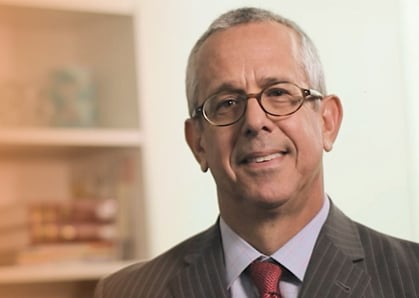Q&A: Land Remediation - What You Need to Know
Whether it’s for condos, office buildings or industrial properties, raw land is becoming more and more scarce in Miami. That means land remediation is becoming a bigger issue. It also means developers have to face new environmental challenges.
GlobeSt.com caught up with Howard E. Nelson, a partner and Environmental Group chair of Bilzin Sumberg in Miami, to get his take on these and other related issues in part one of this exclusive interview. Be sure to come back to this afternoon’s Miami edition to read part two, in which our experts will discuss the benefits of land redevelopment.
GlobeSt.com: As available raw land becomes scarce, how is land remediation playing a greater role in development?
Nelson: When you look at the inventory of remaining raw land, you quickly realize that the overwhelming majority of available large tracts of raw land are either prior agricultural properties or golf courses. Both of these uses routinely involve the legal application of controlled substances such as pesticides, herbicides and rodenticides, which may result in the presence of residual chemicals on the properties.
While the use of these products is normal in the course of agricultural production or golf course maintenance, the potential residuals present unique problems for conversion to residential use. As a result, the need for more thorough environmental due diligence and innovative approaches to land remediation is heightened for these types of properties.
GlobeSt.com: What kind of environmental challenges are usually associated with land remediation and how does this vary by use?
The environmental challenges for land remediation associated with agricultural and golf course uses—as they become converted to residential use—is usually divided into two distinct types: impacts from point sources, and impacts resulting from the ubiquitous application of controlled substances. Impacts from point sources are generally handled in the traditional remediation sense of discovery, delineation and removal of contaminated media.
Impacts resulting from ubiquitous application are more difficult to deal with because they generally cover wide areas of land, and simple source removal can become prohibitively expensive. Obviously, in redevelopment or development of former agriculture or golf course properties for commercial or industrial use, these issues become less complicated, as risk-based corrective actions allow for remedial strategies to prevent exposure to contaminated media, such as encapsulation rather than removal.
GlobeSt.com: We are also seeing a lot of urban infill redevelopment. What are some of the most common environmental uses in those instances?
Nelson: Urban infill development generally involves more point source pollution from prior industrial or commercial uses. With urban infill redevelopment, we also see a lot more impact from former heating tanks and related petroleum impacts.
Additionally, in dense urban corridors, infill development involves solving complicated stormwater management issues, due to the lack of available detention areas and the complexity of managing stormwater without exacerbating or moving contaminant plumes. The existence of contaminant plumes, whether on the project site or nearby, can also affect construction dewatering plans, particularly with respect to disposal of contaminated effluent.
View Part 2 of the Q&A, "Why Land Redevelopment May Hit Big"
This article is reprinted with permission from GlobeSt.com.
